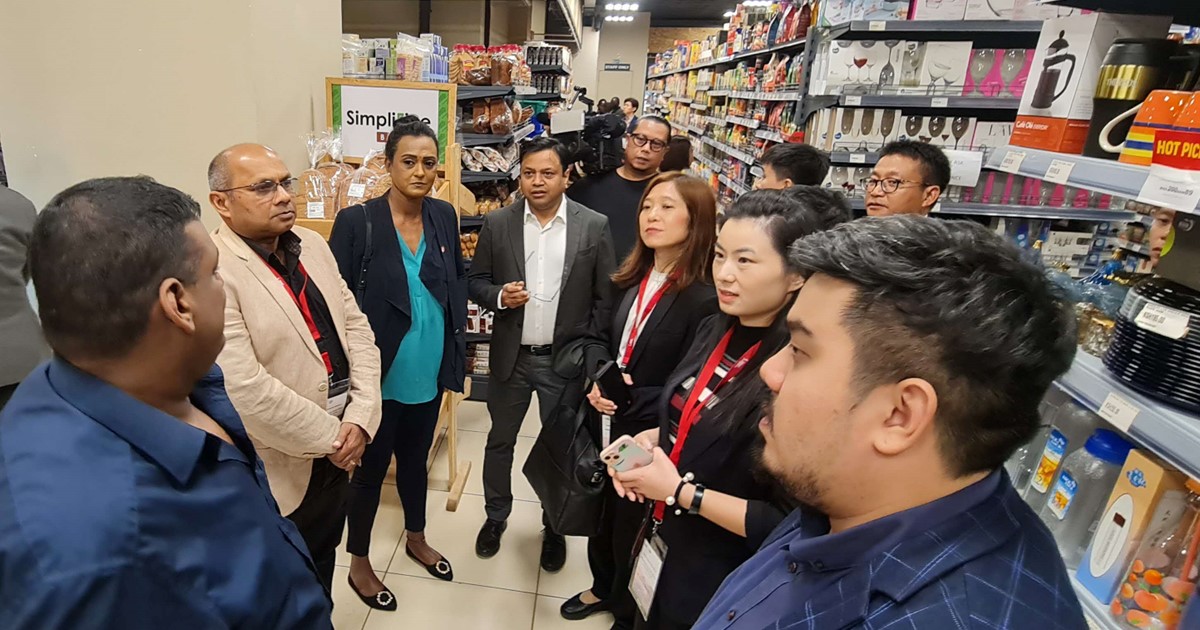: Time is ripe for Singapore companies to expand in Africa
By G. Jayakrishnan, Executive Director for South Asia, Middle East and Africa at Enterprise Singapore

DURING the course of my work, I often have to explain just how huge and diverse Africa is. This is a continent comprising more than 50 countries, a population of 1.4 billion, speaking hundreds of languages and with a rich range of cultures. In terms of size, it’s about seven times the size of South-east Asia.
During Prime Minister Lee Hsien Loong’s visit to South Africa and Kenya in May, he called on Singapore companies to “break new ground” and explore markets further afield while developing their existing ventures in established markets.
There are many countries in Africa that are stable and a good fit for trade and investment, and importantly, where the governments are welcoming of foreign investments, Singapore included.
Amid an uncertain global economic outlook, supply chains continue to be disrupted and higher food and energy prices persist. Conducting international business has become more complex.
This context underscores how important it is for Singapore companies to diversify beyond traditional markets to build resilience. Africa must be part of this equation.
According to the African Development Bank, Africa is set to outperform the rest of the world in economic growth over the next two years, with real gross domestic product averaging around 4 per cent in 2023 and 2024. This exceeds global averages of 2.7 per cent and 3.2 per cent over the same period.
The pandemic affected Africa, but its public health systems and its people proved to be resilient. However, geopolitical tensions disrupted global energy, food, and fertiliser supplies before the continent could recover fully from the pandemic.
These challenges have accelerated the pace of change across the continent. With three overseas centres in Accra, Johannesburg and Nairobi, Enterprise Singapore has seen the will to transform with increasing urgency across many African economies.
African governments, private sector players, foreign investors and international development agencies are aligned in their objectives to enable the digital economy, to manufacture locally, to boost exports and to attract foreign investment.
Digitalisation and manufacturing
Before the pandemic, digital applications were already disrupting businesses and transforming societies across Africa. The pandemic turbo-charged this space.
Digitalisation has unlocked efficiencies, boosted transparency and brought millions of Africans into the consumption economy. The growth in digital commerce has created opportunities in fintech, cybersecurity and payment solutions, among others.
Digitalisation can also transform traditional industries. For example, given Africa’s large landmass, there is significant potential to deploy digital solutions in the transport and logistics industry. Singapore company Ascent Solutions’ end-to-end Internet of Things monitoring solution tracks the delivery of petroleum products for the Ghana National Petroleum Authority.
Its solution provides real time and continuous security monitoring of thousands of heavy vehicles from 16 major depots to 4,000 petrol retail outlets across Ghana, increasing transparency and accountability. Electronic cargo tracking locks on the vehicles also protect against tampering.
Another key enabler of Africa’s growth is manufacturing. The implementation of the African Continental Free Trade Area (AfCFTA) will create the world’s largest free trade area with a combined GDP of US$3 trillion.
This will drive new investments into manufacturing in Africa as companies boost local production to supply to an integrated African market.
Some Singapore companies already see the opportunity. Agri-business company Royal Nuts set up a US$23 million cashew processing factory in the Ivory Coast in July 2022. We expect more manufacturing-related projects to take off in Africa as AfCFTA reduces cross-border tariffs, and as infrastructure including power, ports and roads improves in tandem.
Going green
A fast-growing opportunity is in Africa’s green economy. With Africa’s abundant natural resources, there is opportunity for Singapore to collaborate with Africa across a spectrum of green economy opportunities. Last year, Singapore and Ghana successfully concluded negotiations on an Implementation Agreement on carbon credits cooperation.
Riding on this, Singapore company GenZero signed a memorandum of understanding with carbon project developer AJA Climate Solutions to invest in a US$30 million landscape restoration project in Ghana. The project will restore degraded and deforested landscapes in the Kwahu area and at the same time generate carbon credits that could be used to offset carbon tax.
Green development is rising quickly on Africa’s agenda. This means opportunities to provide sustainable solutions in areas such as agriculture, clean energy, sustainable materials, e-mobility and transportation.
For instance, alongside Africa’s urbanisation drive, there is now demand for sustainable city planning and green building solutions, and project management for infrastructure developments. Singapore company GreenA Consultants has undertaken projects in Tanzania, Rwanda and Kenya, providing sustainability-related advisory and project development.
Getting a headstart
At Enterprise Singapore, we have been very encouraged by the increasing interest from Singapore companies in Africa. For the first half of this year, the number of companies that we supported to venture into Africa has exceeded that of the whole of 2022.
Our advice to Singapore companies venturing to Africa has been consistent. Do your research, speak to fellow companies that have entered the market earlier, take it one market at a time.
Visit the market and spend time on the ground. It is important to get past the headlines, which are often not positive. Factor in the hidden costs, be ready to course-correct, and commit for the long term.
Even as the Singapore government continues to build relations with African countries to ease conditions for local businesses to enter these markets, we see an increasing number of companies from around the world beginning to recognise Africa’s strengths – favourable demographics, greater trade integration, increasing literacy and digitalisation, rapid urbanisation and an improving business climate.
Singapore companies that want to get into the market will need to act fast if they want to get a headstart in this continent.
The writer is executive director for South Asia, Middle East and Africa at Enterprise Singapore.
Source: The Business Times © Singapore Press Holdings Limited. Reproduced with permission.

